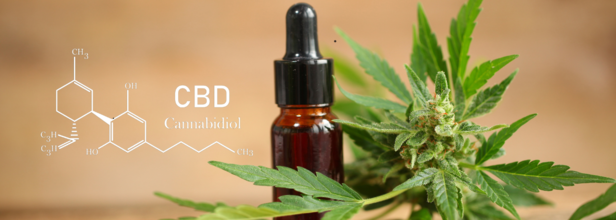
Credits: Canva
What Is The Difference Between CBD And THC?
By definition, what differentiates the two?
CBD: It is derived from hemp or cannabis, and is primarily used for its potential therapeutic benefits. It could help in reducing anxiety, easing pain, and treating seizures. It does not produce a psychoactive “high” and is available in various forms like oils, gummies, and creams.
THC: THC, however, is the compound that causes the euphoric “high” associated with cannabis. It’s commonly consumed through smoking cannabis, edibles, tinctures, and capsules. THC also offers medical benefits but is more likely to cause psychoactive side effects.
What is legal, what is not?
CBD: Hemp-derived CBD products (with less than 0.3% THC) are federally legal in the United States. However, the point of having a federal state is that the laws may vary in every state. Though, marijuana-derived CBD products remain federally illegal but may be permitted under certain state laws.
THC: The legality of THC again depends on state regulations. Some states allow medical or recreational use, while others restrict it entirely. Always check local laws before purchasing or using THC-containing products.
Are there really any medical benefits?
Both CBD and THC offer potential health benefits, often overlapping in their uses:
- CBD: Commonly used to relieve pain, reduce anxiety, ease depression, improve sleep, and decrease seizures. It’s also being studied for conditions like schizophrenia and inflammation.
- THC: Known for helping with nausea, appetite stimulation, chronic pain, and insomnia. It’s FDA-approved in synthetic forms (like dronabinol) for treating chemotherapy-induced nausea and appetite loss in conditions like AIDS.
Some conditions may respond better to one compound or a combination of both. For example, CBD may help reduce THC’s psychoactive effects when used together.
Side Effects
- CBD: Generally well-tolerated, but some users may experience mild side effects like drowsiness, reduced appetite, or diarrhea. Side effects are often due to interactions with other medications.
- THC: Can cause temporary effects like dry mouth, red eyes, and increased heart rate. Long-term use, especially in adolescents, may be linked to psychiatric issues such as anxiety or low motivation.
Drug Testing and Psychoactive Effects
Drug Testing: THC is more likely to show up on drug tests, as it’s specifically screened for. CBD may also appear if the product contains traces of THC.
Psychoactive Effects: CBD is not intoxicating but has mild psychoactive properties, such as promoting relaxation. THC, however, directly binds to brain receptors, causing euphoria or a “high.”
Choosing CBD or THC
Your choice depends on your needs:
- If you’re looking for non-psychoactive relief from pain, anxiety, or inflammation, CBD may be a better option.
- If you need appetite stimulation or relief from severe nausea, THC might be more effective.
- For some conditions, a combination of CBD and THC could offer the most benefits.
Note: This article in no way promotes usage of either or substance abuse. Please consult with your doctor and check with your state laws before consuming any of the products.
© 2024 Bennett, Coleman & Company Limited

